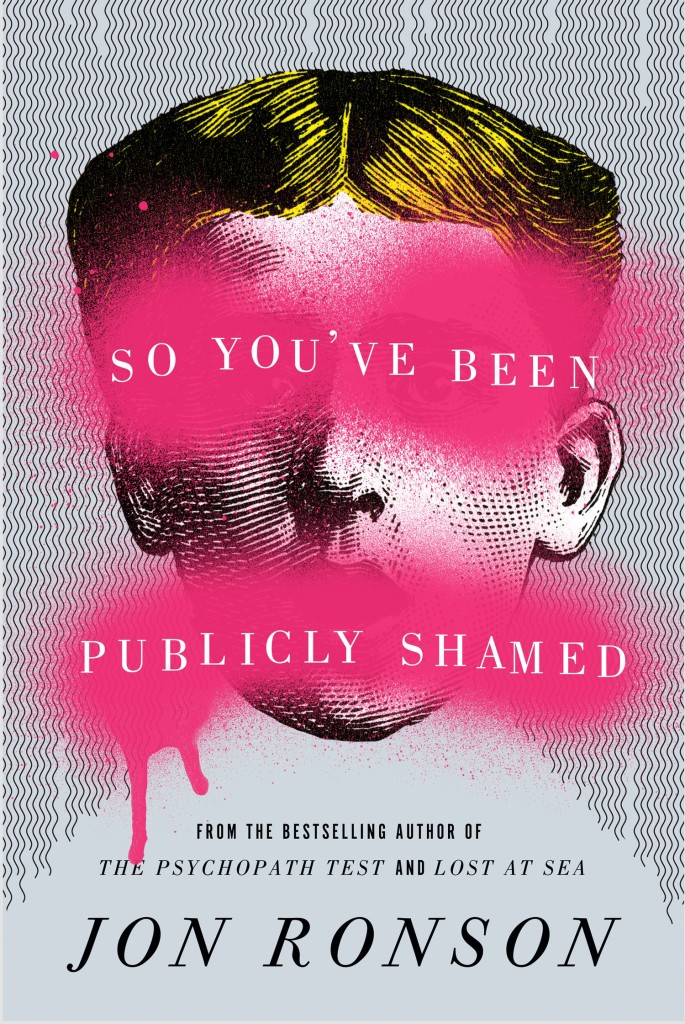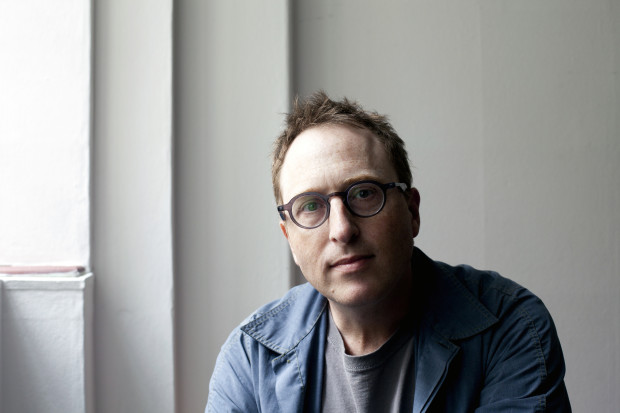In the past few years there has been a lot of critical introspection and analysis about how social media (and the internet in general) impacts the quality of our lives. It clearly can do a lot of good, both for society and individuals.
And it also can do a lot of harm. There are a lot of articles, lectures, books and conversations devoted to discussing two main categories of harm:
- Cyber-bullying and online harassment.
- The impact on our attention spans, ability to focus, and contentment with our own lives in comparison to others.
But until So You’ve Been Publicly Shamed by Jon Ronson, I hadn’t seen as much writing that focuses on critically discussing our ability to, collectively, take down individuals and corporations. To shame them mercilessly and, often, ruin them – or at least cause a tremendous amount of damage. It’s not something most people perceive as bullying: someone has done something the internet has collectively deemed wrong and thus the backlash is perceived as justified. It happens so rapidly that no one is able to pause to analyze if the punishment fits the crime.

Jon Ronson explores and interviews a wide variety of examples: Jonah Lehrer (the author exposed for including fake Bob Dylan quotes in his book “Imagine: How Creativity Words,” and his exposer, Michael C. Moynihan. Justine Sacco, the woman made famous for tweeting poorly received jokes on her way to Africa. A girl named Lindsey Stone who took a mindlessly dumb photo at Arlington National Cemetery that she didn’t realize would be offensive, and then had her name absolutely destroyed online in response (even to the point of receiving threats of violence). He also explores our offline history of shaming and mob mentality, such as: public stoning, Judge Ted Poe’s unusual “shame” sentencing, and the famous Stanford prison experiment.
It’s an incredibly interesting book. But it’s also an important contribution to the ongoing discussion we need to be having about how we behave online. When our interactions with people are one sided and brief, and occur on a computer screen, we can sometimes neglect their humanity. We can say things we wouldn’t say to someone in front of their face. They feel more anonymous to us, and we feel more anonymous in return – especially during breaking news that turns us into an online mob.
If you’ve read Jon Ronson before (such as Lost at Sea, The Psychopath Test,
Them: Adventures with Extremists, and The Men Who Stare at Goats), you might already be, like me, a big fan of his writing and journalistic style. It’s unique and excellent – he writes about fascinating subjects and will often make you think in a different way or understand stories in a way you’ve never thought about them before. If you’ve never read any of his work, there’s a great piece in the NY Times about Justine Sacco adapted from the book that is a good introduction to his style. I also recommend listening his books on audiobook, he narrates them himself and has a captivating voice.
The one area I would have liked to see him explore in more detail is his investigation into how Max Mosley recovered so quickly from his “Nazi Orgy” scandal. During their conversations, both Mosley and Ronson ponder and discuss how it is that he emerged so unscathed. It took some time, but Jon Ronson realized one majorly important point: people don’t care about men involved in sex scandals. It’s a double standard in our society, and it creates an imbalance that’s worth exploring in more detail. (I do realize that’s probably a big enough topic for an entire book on its own. Is there already a book on this? If you know of one please link me in the comments!)
Jon Ronson doesn’t present a solution to these problems. He’s a journalist, reporting on how things are. He does describe how the research has changed him personally, how he no longer takes part in Twitter take downs and public shaming online. And by bringing this topic into our minds and helping us have discussions about it, he’s helping all of us become more conscious of our personal actions online, and helping us think more critically when we see online shaming in the future.
“Judge Ted Poe’s critics—like the civil rights group the ACLU—argued to him the dangers of these ostentatious punishments, especially those that were carried out in public. They said it was no coincidence that public shaming had enjoyed such a renaissance in Mao’s China and Hitler’s Germany and the Ku Klux Klan’s America—it destroys souls, brutalizing everyone, the onlookers included, dehumanizing them as much as the person being shamed.”
“We were much more frightening than Judge Ted Poe. The powerful, crazy, cruel people I usually write about tend to be in far-off places. The powerful, crazy, cruel people were now us. It felt like we were soldiers making war on other people’s flaws, and there had suddenly been an escalation in hostilities.”
“I suppose that when shamings are delivered like remotely administered drone strikes nobody needs to think about how ferocious our collective power might be.”
“We’re creating a culture where people feel constantly surveilled, where people are afraid to be themselves.”
//
Other reviews & articles about So You’ve Been Publicly Shamed: (if you review it, please post a link in the comments and I’ll add to the list)
- Married to the Mob (Dublin Review of Books)
- Review: ‘So You’ve Been Publicly Shamed’ Delves Into Infamy in the Age of Social Media (NY Times)
- When the Cyberbully Is You (NY Times)

I’m definitely interested in reading this book. I loved Them: Adventures with Extremists. It is very alarming how comfortable people are with absolutely vilifying others. The last sentence you quote is so chilling.
Thanks for mentioning the NY Times article: I thought he balanced the history of public shaming punishments well with Sacco’s story. (By the way, you accidentally re-used the URL for Lost at Sea in the hyperlink for the NY Times article.)
I hope you enjoy it! If you loved “Them” – I definitely think you will. It’s so fascinating. And I agree – I thought the history of public shaming fit in well with the story, I think people don’t realize that what we’re doing to people online isn’t that far removed from some of the cruel & unusual punishments for minor transgressions in our history books.
Thank you for alerting me to the link error – I’ve fixed it! :)
My mum said something I thought was so interesting: She said that when you put “These napkins come from trees” on restaurant napkins and napkin holders, people use way, way fewer of them. And she said what if before you tweet at someone, you got a reminder that said “You are tweeting at a human being.” I wonder.
I love that example! I was in a car yesterday driving back into NYC and my friend and I were talking about all the road rage – how people yell at each other and flip each other off over minor transgressions on the road. It’s like we forget our humanity when we’re behind the wheel – when we’re protected inside our vehicles from confrontation. I think the internet makes a lot of people feel the same way. \
You know, I saw this book in a newsletter (Biographile, I think) and considered adding it to my TBR list. I definitely will now. It does sound interesting and I like that he delves into mob mentality, which I often blame for the prevalence of public shaming on social media.
I’m always tempted to purchase his Psychopath Test as well. I read half of it in a Barnes & Noble store but forgot to purchase it. I might borrow that one from the library.
That’s awesome to hear, I hope you enjoy it too!
I think The Psychopath Test is definitely worth finishing, getting a library copy would be perfect. I also loved “Lost At Sea” – it’s a bit more random, he focuses on a variety of interviews / subjects, but they are all fascinating and interesting to read.